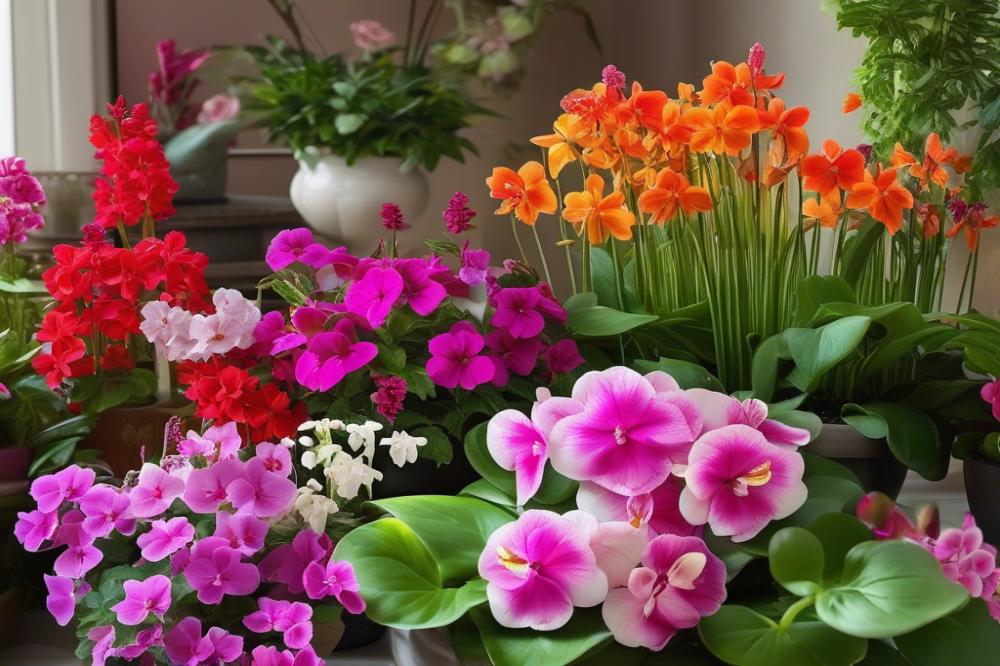Introduction
Organic rose gardening is a captivating pursuit for many enthusiasts. This method focuses on nurturing these beautiful plants using natural techniques. By avoiding harmful chemicals, gardeners can cultivate healthy roses while promoting sustainability.
growing roses organically offers a multitude of benefits. Flowers tend to be more resilient when they are nurtured with organic fertilizers. These natural alternatives enrich the soil and lead to better soil health, which allows roses to thrive. Additionally, the absence of synthetic chemicals means a safer environment for pets and wildlife.
Natural methods of care for roses, such as composting and companion planting, can work wonders. Compost adds essential nutrients and helps retain moisture. Pairing roses with certain plants can provide shade or deter pests, especially when using natural pest repellents. This holistic approach not only encourages vivid flower blooms but also maximizes disease prevention.
Using organic mulch is another effective strategy. It helps retain soil moisture, suppresses weeds, and gradually decomposes to feed the soil. All these practices combine to create a thriving ecosystem where roses can flourish.
In summary, adopting Natural Rose Care techniques fosters a strong and supportive environment for your roses. Engaging in Organic rose gardening not only results in stunning blooms but also contributes positively to the planet. Make the change today and watch your roses thrive like never before.
Understanding Soil Health

Soil health plays a crucial role in rose gardening. Healthy soil provides roses with the nutrients they need to thrive. It influences everything from root development to flower blooms. When soil is rich in organic matter, it becomes a thriving ecosystem of beneficial microorganisms. These tiny creatures help break down organic materials, making nutrients available to plants.
Testing your soil quality is the first step to success. A simple soil test can reveal pH levels, nutrient content, and overall structure. Knowing these factors allows you to make informed choices. If your soil lacks certain nutrients, consider using organic fertilizers to enhance it. Incorporating composting into your routine adds valuable nutrients and improves soil structure.
Organic matter is essential for a healthy garden. It improves drainage and water retention, making it easier for roots to access moisture. Adding organic mulch can cover the soil and keep it cool, preventing weeds and retaining humidity. When mixed into the soil, organic matter boosts its fertility over time.
Balancing pH levels is another critical aspect. Most roses prefer a slightly acidic environment. Maintaining this balance helps roses absorb nutrients effectively. Regular checks ensure that your soil remains within the ideal range. If adjustments are needed, you can use natural amendments like sulfur to lower pH or lime to raise it.
Healthy soil also promotes disease prevention and natural pest repellents. Plants grown in nutrient-rich soil tend to be more resilient against diseases. Additionally, companion planting can help you create a natural pest control system. Certain plants, when grown alongside roses, can deter harmful insects while attracting beneficial ones.
Choosing Organic Fertilizers

When it comes to rose gardening, organic fertilizers can make a significant difference. They provide a natural way to nourish your plants, improving soil health without harmful chemicals. Healthy soil leads to stronger roots and more vibrant flower blooms. Unlike synthetic options, organic alternatives promote microbial activity in the soil. This creates a thriving ecosystem that benefits your roses in numerous ways.
Benefits of Organic Fertilizers for Rose Plants
Using organic fertilizers not only nourishes your roses but also helps in pest control and disease prevention. These fertilizers release nutrients slowly, ensuring that your roses receive what they need over time. This slow release also reduces the risk of nutrient runoff, which can harm nearby plants and wildlife. Organic matter, like composting, improves water retention in the soil. As a result, your plants are less stressed even in dry conditions. Ultimately, a healthy plant is more resistant to pests and diseases.
Types of Organic Fertilizers Suitable for Roses
Several options work well for roses. Compost is one of the best choices. It enriches the soil with nutrients and helps retain moisture. Another excellent option is well-rotted manure. It adds nitrogen and improves the overall soil structure. Organic mulch is also beneficial. Not only does it reduce weed growth, but it breaks down over time, adding nutrients back into the soil. You can also consider fish emulsion or seaweed extract, both of which provide essential trace nutrients.
Application Methods and Timing for Optimal Growth
Proper application of organic fertilizers is key to seeing results. Start by testing your soil to understand its nutrient levels. This test will help determine how much fertilizer your roses actually need. Generally, applying organic fertilizers in early spring is effective. This timing coincides with the active growing season for roses. Use fish emulsion every few weeks during the growing season for an extra boost. When adding compost, a layer around the base of the plant will work wonders. Just remember to avoid the plant stem to prevent rot.
Watering your roses after application helps the nutrients soak into the soil. Additionally, consider companion planting to further enhance growth. Certain plants can naturally repel pests, creating a healthier environment for your roses. Keeping an eye on soil moisture ensures that your roses thrive. With the right organic fertilizers and care, your garden can flourish beautifully.
Companion Planting for Roses

Companion planting is an important strategy in rose gardening. This technique involves growing different plants together to enhance health and growth. When done correctly, it creates a thriving garden ecosystem. The idea is simple: some plants help each other grow while warding off pests. This method can transform how your roses perform.
Several beneficial plants thrive alongside roses. Marigolds are popular for their ability to repel harmful insects like aphids. They release natural compounds that deter pests without harming other plants. Another good choice is garlic, which also acts as a natural pest repellent. Planting nasturtiums can attract beneficial insects, like ladybugs, which feast on aphids. Incorporating these varieties can improve your garden’s overall vitality.
Companion planting can positively influence soil health as well. Certain plants, such as legumes, can fix nitrogen in the soil. This process enriches the earth and supports the growth of neighboring roses. Together with composting, these plants provide nutrients that roses need to produce vibrant flower blooms. Additionally, choosing the right companions can enhance disease prevention. Some plants can create a habitat for beneficial insects and birds, helping to keep harmful pests at bay.
Organic mulch serves as a natural barrier against weeds, helping roses flourish. Using organic fertilizers alongside companions aids in nutrient availability. By carefully selecting plants that enhance their surroundings, rose gardeners can cultivate a dynamic garden. A well-planned layout promotes healthy growth and a bountiful display of color.
Overall, companion planting is a straightforward and effective way to encourage healthy roses. It helps balance the garden’s ecosystem and increases resistance to pests and diseases. This strategy invites a more abundant and diverse environment, making your roses even more delightful to watch flourish.
Natural Pest Control Techniques

Roses can attract a variety of pests that threaten their health and beauty. Aphids, spider mites, and Japanese beetles are just a few of the common insects that can ruin your lovely blooms. Understanding these pests is crucial for effective rose gardening. They tend to arrive when conditions are right, often thriving in poor soil or when roses are stressed. This makes it important to maintain soil health and overall plant vigor.
Many gardeners seek natural pest repellents and barriers to keep these unwanted guests at bay. For instance, neem oil is a powerful ally. Spraying it on affected plants can disrupt the life cycle of pests without harming beneficial insects. Garlic and chili pepper sprays are other DIY options. Homemade solutions can serve as effective deterrents while remaining safe for your garden. Additionally, organic mulch can deter some pests and help maintain moisture in the soil.
Companion planting can also play a significant role in pest control. Certain plants, like marigolds and nasturtiums, can repel harmful insects. Having these companions can provide an extra line of defense for your roses. Moreover, planting herbs such as basil and thyme nearby might attract beneficial insects like ladybugs and lacewings. These helpful creatures naturally feed on the pests that threaten your beautifully cultivated flower blooms.
Beneficial insects are not just a bonus; they’re essential for effective pest management. They can help minimize the need for chemical solutions, which is key in organic rose gardening. Ladybugs can consume hundreds of aphids in a day. Attracting these allies to your yard might be as simple as providing plants they love. Create habitats with diverse plants to encourage their presence.
Effective pest control combines multiple techniques. When you create a balanced ecosystem in your garden, you can naturally reduce the presence of pests. Along with the use of organic fertilizers and disease prevention methods, creating an inviting environment for beneficial insects will support your goal of nurturing healthy roses. This approach not only helps with immediate problems but enhances the overall vigor of your rose plants.
Organic Mulching and Composting
Benefits of Organic Mulch for Rose Gardening
Organic mulch plays a critical role in maintaining healthy rose gardens. It conserves moisture, which is essential during hot summer months. Less watering means more energy for healthy growth. Furthermore, mulch acts as a barrier against weeds. This helps roses compete better for nutrients and water. Many gardeners report fewer pests and diseases thanks to this protective layer. Natural materials in mulch break down over time, enriching the soil and feeding roses. Stronger flowers lead to more vibrant blooms.
Types of Organic Mulch to Consider
There are several options when it comes to organic mulch. Wood chips offer a rustic look while providing excellent moisture retention. Straw is another choice, effective for weed control and helping with soil insulation. Shredded leaves can also work well, particularly in autumn. They decompose quickly, adding nutrients as they break down. Grass clippings provide a nutrient boost but should be used sparingly to prevent matting. Choose a type that fits your garden’s style and local climate. Experimenting with different materials keeps your gardening experience fresh and rewarding.
The Importance of Composting for Enriching Soil and Feeding Roses
Composting should be a staple in every rose gardener’s routine. Healthy soil is the foundation for flourishing gardens. By adding compost, you improve soil health and boost organic matter. This enhances nutrient availability for your roses. Compost also encourages beneficial organisms that naturally combat pests. A healthy ecosystem reduces the need for synthetic fertilizers and harsh chemicals. You can create compost easily at home using kitchen scraps and yard waste. Engaging in companion planting alongside helps create a balanced garden. This combination can lead to stunning flower blooms and robust plants.
Disease Prevention in Organic Rose Gardening
Rose plants are beautiful additions to any garden, but they can face many challenges. Common diseases include black spot, powdery mildew, and downy mildew. These issues can ruin the vibrant color of flower blooms and weaken the plants. Keeping roses healthy is crucial for a flourishing garden.
Natural methods for disease prevention can be surprisingly effective. One approach is using organic fertilizers, which promote overall plant health. A strong rose plant is less susceptible to diseases. Composting also plays a vital role. By recycling kitchen scraps and yard waste, you create nutrient-rich soil. Healthy soil improves the resilience of plants.
Companion planting can help protect roses too. Some plants naturally repel pests that harm roses. For instance, marigolds are known to deter certain insects. These relationships can keep your rose garden thriving with fewer chemicals. Moreover, organic mulch creates a barrier that helps maintain moisture and prevent soil-borne diseases. It’s an easy yet effective way to shield your roses.
Another key aspect involves soil health. Healthy soil supports strong roots. Furthermore, natural pest repellents can keep unwanted insects at bay. Garlic spray and neem oil are examples of effective treatments that avoid harmful chemicals. Proper care and maintenance are essential as well. Routine watering and pruning can prevent disease spread. Healthy practices lead to vibrant, disease-resistant rose plants.
Maximizing Flower Blooms
Encouraging your roses to produce abundant blooms can be a rewarding process. It involves some key techniques that work together for impressive results. Start by ensuring your roses receive the right nutrients. Organic fertilizers can greatly enhance your flower production. These natural options promote healthy growth without the risks associated with chemical additives.
Proper Pruning and Deadheading Practices
Pruning is fundamental in rose gardening. Carefully cutting back old wood allows sunlight to penetrate and encourages new growth. Deadheading, or removing spent flowers, redirects energy from fading blooms into new ones. Not only does this help increase the number of flowers, but it also keeps your garden looking tidy.
The Role of Sunlight and Watering in Bloom Production
All flowers thrive under the right conditions. Roses are no different. They need plenty of sunlight, ideally six to eight hours each day. Think about where you plant them. A sunny spot helps boost their blooming potential. Watering should also be a priority. By giving your roses deep, infrequent watering, you help develop strong roots. That means they can withstand dry spells while still promoting flower blooms.
Soil health plays a vital role too. Use composting to enrich your garden’s soil naturally. This practice helps retain moisture and provides essential nutrients. Organic mulch can further aid moisture retention and deter weeds. Companion planting with herbs or flowers can protect roses from pests, naturally enhancing their resilience without harsh chemicals. Implementing natural pest repellents can limit damage from unwanted visitors.
Emphasizing disease prevention is equally crucial. A healthy rose plant is less likely to succumb to diseases. Practicing good spacing between plants encourages airflow, which helps keep foliage dry. This simple step can drastically reduce fungal issues. All these methods work together. By following these practices, your roses can flourish like never before. They’ll reward you with a stunning display of flowers that brighten any garden.
Embracing the Secrets of Thriving Roses
Recapping the key practices for organic rose gardening helps us understand their importance. Mulching, pest control through natural methods, and using organic fertilizers are essential. Healthy soil rich in nutrients makes a significant difference. These practices not only promote beautiful blooms but also support the environment.
Adopting these natural methods means healthier roses and a healthier planet. Roses grown organically stand out in their beauty and resilience. These flowers can thrive without harsh chemicals, which can harm beneficial insects and the soil itself. Your garden can make a statement without compromising on health.
Consider the joy of walking through a garden filled with vibrant, lush roses. Imagine their fragrance in the air and the diversity of colors greeting you. Enjoying the beauty of thriving organic roses is a reward for your dedication. Choosing organic practices is worth your time and effort. Let’s cultivate a greener world, starting with our gardens!



